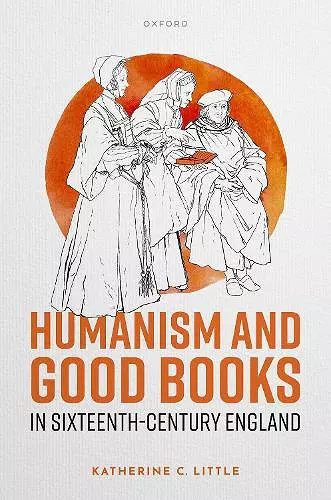Humanism and Good Books in Sixteenth-Century England
Format:Hardback
Publisher:Oxford University Press
Published:16th Mar '23
Currently unavailable, and unfortunately no date known when it will be back

This book explores sixteenth-century humanism as an origin for the idea of literature as good, even great, books. It argues that humanists located the value of books not only in the goodness of their writing-their eloquence--but also in their capacity to shape readers in good and bad behavior, thoughts, and feelings, in other words, in their morality. To approach humanism in this way, by attending to its moral interests, is to provide a new perspective on periodization, the transition from the Middle Ages to the Renaissance / early modern. That is, humanists did not so much rupture with medieval ideas about literature or with medieval models as they adapted and altered them, offering a new confidence about an old idea: the moral instructiveness of pagan, classical texts for Christian readers. This revaluation of literature was a double-edged sword. On the one hand, humanist confidence inspired authors to invent their own good books--good in style and morals--in morality plays such as Everyman and the Christian Terence tradition and in educational treatises such as Sir Thomas Elyot's Boke of the Governour. On the other hand, humanism placed a new burden on authors, requiring their work to teach and delight. In the wake of humanism, authors struggled to articulate the value of their work for readers, returning to a pre-humanist path that they associated with Geoffrey Chaucer. This medieval-inflected doubt pervades the late sixteenth-century writings of the most prolific and influential Elizabethans-Robert Greene, George Gascoigne, and Edmund Spenser.
In my opinion, the richness of Little's approach and, more specifically, her interest in the "accretive" nature of literature-enables her to address fundamental ideas about what it means to write and read books in the early modern period. The monograph enshrines the Renaissance book as an object that contains the power to fashion readers, to ask questions about morality, and to explore the past. Consequently, Humanism and Good Books in Sixteenth-Century England may be of interest not only to scholars of Renaissance literature in England but also to all those interested in medieval source study and early modern intellectual history. * Eva Plesnik, Renaissance and Reformation *
ISBN: 9780192883193
Dimensions: 240mm x 161mm x 22mm
Weight: 514g
236 pages